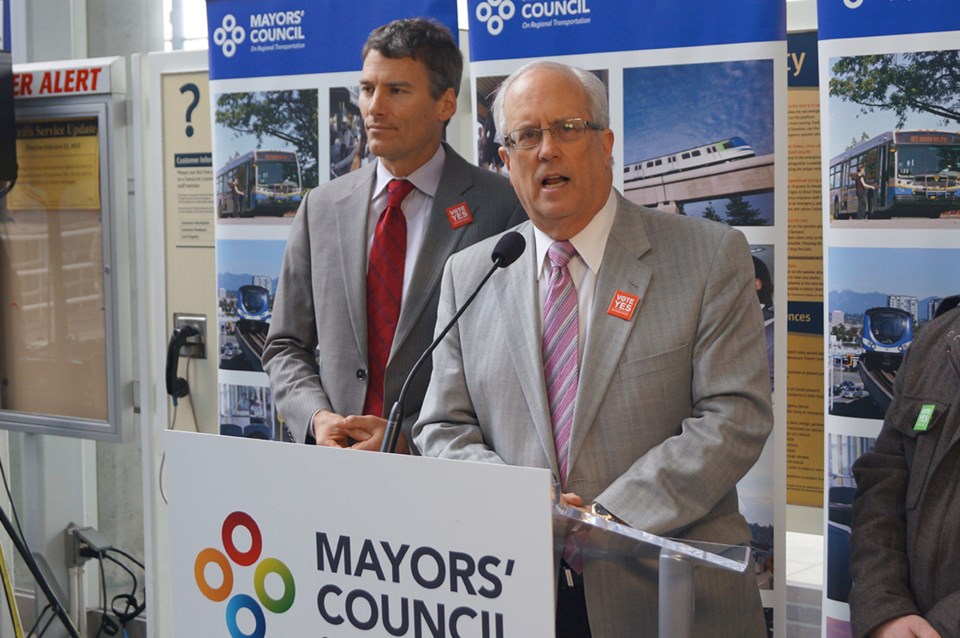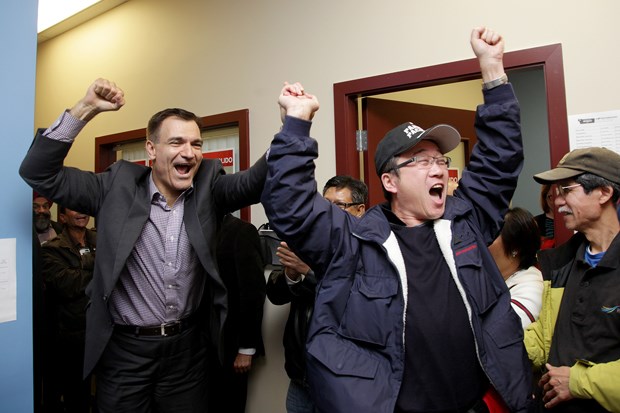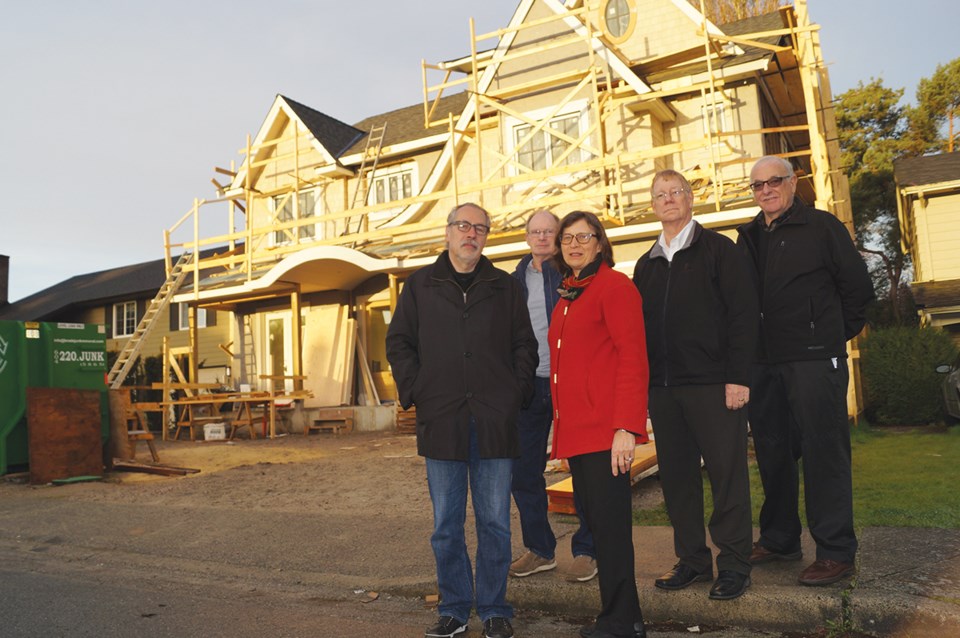5 Summer drought
Stage 3 water restrictions were put in place across Metro Vancouver after a serious drought hit the region. The restrictions went into effect in mid July and ended in early September. The restrictions led to Richmond issuing 407 violation tickets, totalling $208,200 in fines, after the city received numerous complaints of lawn watering. The city ended up spending an additional $500,000 watering juvenile trees by hand with reclaimed water.

The drought was preceded by an unusually warm winter. In three months, from May to July, Richmond saw under 20 millimetres of rain when the annual average for that time is about 160. Local firefighters were busy dousing brush fires and trails were closed.
4 Transit
It’s generally agreed that improved transit is need in the Lower Mainland, but the province refused to increase funding and regional mayors didn’t want to raise property taxes. So, the Mayors’ Council spent close to $6 million trying to convince taxpayers to agree to a 0.5 per cent regional sales tax to fund transit projects in Metro Vancouver. Richmond Mayor Malcolm Brodie was a lead hand on the council. Several Richmond councillors disagreed with the tax, as did 73 per cent of the Richmondites. Richmond was above average in its opposition, as only 62 per cent of the region voted ‘no.’ A stalemate of sorts resulted after the failed vote as transit projects have been put on hold.

However, what hasn’t been put on hold is a planned 10-lane tolled bridge at the George Massey Tunnel crossing. Details of the $3.5 billion project have remained a mystery to the City of Richmond as the provincial government has shut out Brodie, who continues to argue that the money would be better spent on public transit, from the process. What is known is that the province will need to acquire farmland to widen Highway 99.
3 Federal election
The federal election took some intriguing twists and turns in Richmond. Prime Minister Stephen Harper called the election in early August and made this city one of his first stops. The Conservatives subsequently missed several all-candidates meetings. Nevertheless, MP Alice Wong squeeked out a victory after CTV News initially called Liberal Lawrence Woo the winner.

In Steveston-Richmond East, lawyer Joe Peschisolido made a big comeback, defeating his former Canadian Alliance ally Kenny Chiu despite charges from nomination candidate Wendy Yuan that the Liberals manipulated the party’s nomination process. The alleged “kingmaker,” Raymond Chan, attended most of Peschisolido’s major events.
2 Language debate
Richmond’s great language divide continued to garner national headlines in 2015, a year in which Richmond city council chose to take on an educational approach with businesses, instead of imposing a mandatory bylaw to address Chinese-only signage.
While Chinese-only signs only account for about four per cent of officially regulated signs the city proposed to address all secondary signs, in an attempt to “de-clutter” business fronts.
The city received legal advice that a mandatory bylaw, dictating signs must be at least 50 per cent English or French, would violate the Charter of Rights and Freedoms, unless it could be shown that the issue is affecting community harmony.
Meanwhile, international media outlets, such as national broadcasters from South Korea, Germany and Japan, continued to visit Richmond to document the rapid demographic changes, as well as the signage controversy.
In December, the city started to look for a new bylaw officer who will be tasked to educate businesses and enforce a new “clutter” bylaw.
The language issue ended the year with a flurry when a condo owner made a human rights complaint because his strata council held meetings in Mandarin. The story prompted a record number of comments on the Richmond News’ website and social media.
1 Mega homes
The character of single-family neighbourhoods dominated headlines and online page views at the Richmond News. In January, the News documented a group of citizens concerned about the demolition of older homes in favour of new ones, which appeared to dominate the landscape. The problem was two-fold: the city’s bylaws failed to keep new and old houses conforming with one another; and provincial land-use contracts allowed for three-storey homes. Come March, realtor Lynda Terborg made her first appearance at Richmond City Hall with Richmond’s first ratepayers association — the Westwind Ratepayers’ Association.
Terborg called for lower home height limits (a return to 2008 standards), better bylaw enforcement mechanisms and greater restrictions on house massing. The city eventually passed new building bylaws to address the first two issues and stated it would commit to further work on issues such as backyard setbacks.
Several long planning committee meetings, public workshops and public hearings led to the changes. The meetings, for the most part, pitted residents against developers and discourse often led to secondary issues such as housing affordability, intercultural harmony and tree preservation.
In November, council agreed to terminate land-use contracts in order to have every residential property fall under one set of city bylaws.



